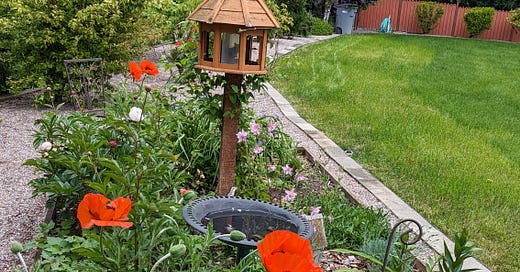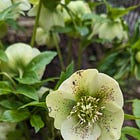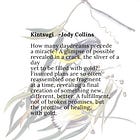I’ve no chisel but this pen
chipping at paper like stone,
carving words, not to build but bend
graphite like steel, curve the bones
(Dear God, not break) but lay in place
and then form a space to hold a new
edifice, sculpt and rest and tap some more
while You hand me bricks to begin, restore.
Opening poem from my book ‘Hearts on Pilgrimage-Poems & Prayers’1
One definition of the word contemplate is from the Latin words, ‘con’ and ‘templum,’ loosely translated as ‘with the temple,’ or to carve out a temple. That definition, gleaned from the book, “God in the Yard: Spiritual Practice for the Rest of Us” (L.L. Barkat), led to the metaphor above as I pondered how I might ‘carve out a temple’ with my words.
I think often and mostly in metaphors, being an Abstract Random Processor, something I wrote about in my recent post HERE. I am a terrible storyteller because I recall very few details of anything, but I do remember images and emotions. I may not be able to describe the how or what of something but I can clearly recall how I felt during the experience.
In my humble opinion, that is the heart of a good poem—offering the reader an image or emotion with which they can identify, prompting an, “I see that/feel that, too.”
I found this definition helpful:
The word metaphor comes directly from Latin metaphora, "a transfer," especially in the sense of one word to a different word, literally "a carrying over," also from metapherein "to transfer, carry over; change, alter; to use a word in a strange sense," from meta "over, across" (see meta-) + pherein "to carry, bear."
Metaphors help do that, carrying our thoughts across the page with images via our imagination, an idea voiced perfectly by the bard himself:
“And as imagination bodies forth
The forms of things unknown, the poet’s pen
Turns them to shapes and gives to airy nothing
A local habitation and a name”
―William Shakespeare, A Midsummer Night’s Dream
I am no Shakespeare, but I am an expression of God in the world by giving to airy nothing a local habitation and a name. In other words, my writing can provide a bridge of sorts from heaven to Earth and help you see what I see. The best way I know to do that is with my (virtual) pen.
So, tell me, how might you ‘carve out a temple’ with words right where you are, at the kitchen sink, in your car, sitting with your mug of tea staring out the window?
Pen your thoughts somewhere (or ‘voice’ them; Google Notes is my go to!) and come back to share with the Poetry & Made Things Community.
We would love to hear in the Comments.
Talk soon,
Jody
Related:
I’m grateful to those who have become new paying subscribers. For others who may not want to offer monthly support at $5/month but still provide a “Thanks, Jody,” behold, The Tip Jar.
Also, if you know someone who might benefit from this post, please forward it using the Share button below. You can copy and forward the link, send the post via email, post on Facebook, Twitter and more. Thank you so much!
Available on Amazon or via the Books tab here on my Substack page.








Yes, Jody, your virtual pen yields poetry that is a bridge from heaven to earth:)
Loved this poem 🧡